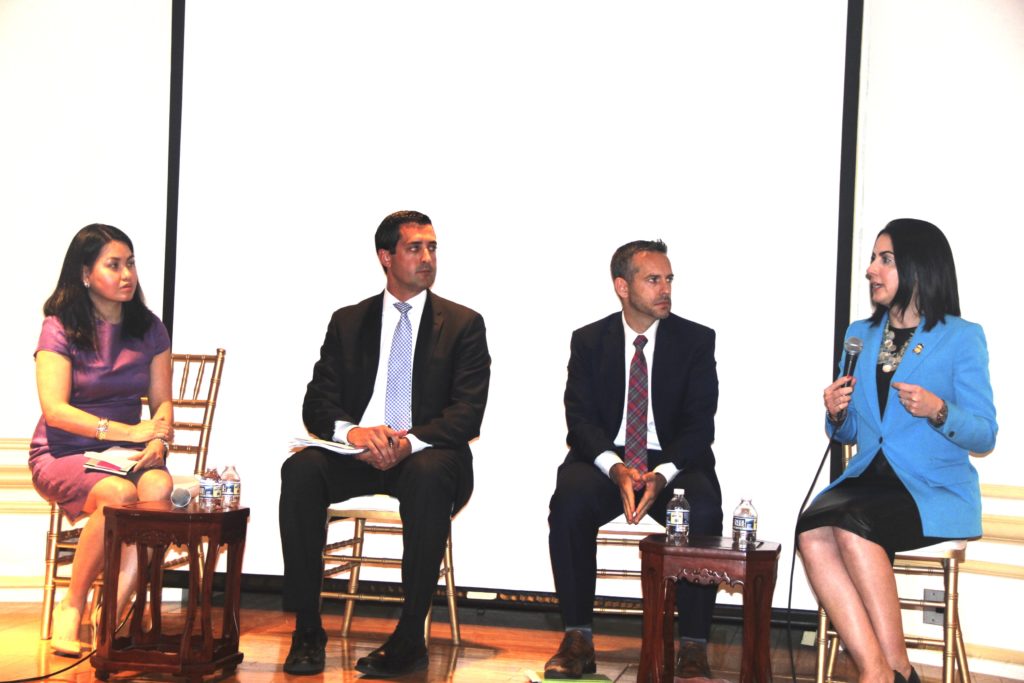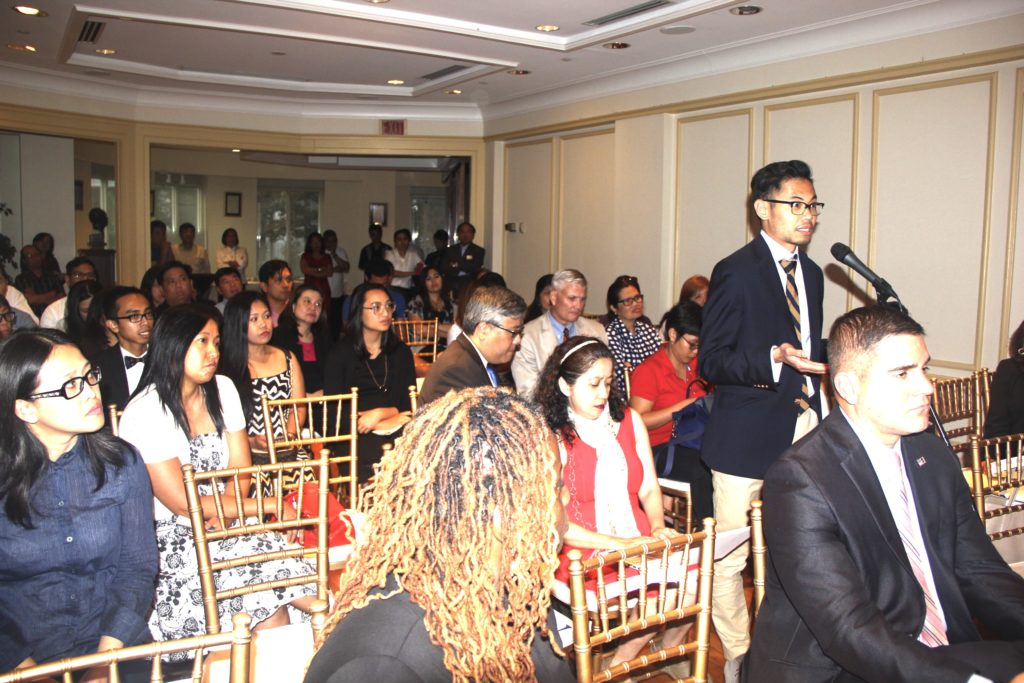DC panel explains immigration enforcement guidelines

Panelists, from left, First Secretary and Consul Katrina Borja-Martin of the Philippine Embassy (moderator); Nathan Berkeley, deputy chief, Office of Communications and Legislative Affairs, Executive Office for Immigration Review of the U.S. Department of Justice; John Schultz,deputy assistant director for Enforcement and Removal Operations of the U.S. Immigration and Customs Enforcement (ICE); Barbara Gonzalez, assistant director for Stakeholder Engagement of the U.S. Immigration and Customs Enforcement (ICE). CONTRIBUTED
WASHINGTON, D.C. – To provide the Filipino community of Metro DC with accurate information on the current immigration policy of the United States, the Philippine Embassy organized a special edition of the Talakayan sa Pasuguan (Community Forum) at the Embassy’s Romulo Hall on June 29.
The panel of speakers consisted of Barbara Gonzalez, assistant director for Stakeholder Engagement of the U.S. Immigration and Customs Enforcement (ICE); John Schultz, ICE deputy assistant director for Enforcement and Removal Operations; Nathan Berkeley, deputy chief of the Office of Communications and Legislative Affairs, U.S. Department of Justice-Executive Office for Immigration Review (DOJ-EOIR). The Embassy’s First Secretary and Consul Katrina Borja-Martin served as the moderator.
Gonzalez gave a rundown of ICE’s mandate in enforcing federal laws governing border control, customs and trade and immigration to promote homeland security and public safety through their directorates.
“Immigration is a complex issue, it is an emotional issue, and an issue that isn’t quite understood very well,” said Gonzalez.
“President Trump made it clear, through an executive order that was issued earlier this year, that no one will be off the table when it comes to the enforcement of our immigration laws,” she further emphasized.
Gonzalez also assured the audience that the law is being enforced in a humane way, and that concerned individuals are treated with dignity and respect, and accorded due process.
Meanwhile, Berkeley’s presentation focused on the mandate and activities of the DOJ-EOIR. More specifically, these involve looking at the facts of cases and the law and determining whether someone is removable or otherwise eligible for some form of relief.
“The one thing I want to end with is to invite you to observe immigration court hearings. This is the best way to really get a sense of what happens,” Berkeley concluded.
The panel also fielded questions from the audience on the conduct of operations, hearings, and scams targeting immigrants in a brief Q&A session.
Consul Borja-Martin reiterated the Embassy’s responsibility of nurturing the relationship between the Philippines and the United States that is based on sovereign equality and mutual respect.
She also assured the Filipino community that the Embassy stands ready and willing to help Filipino nationals who may be affected by the enforcement of US immigration laws.
“One of the three pillars of Philippine foreign policy is to render assistance to nationals in distress – Filipinos abroad – regardless of immigration status. Our doors are always open to hear your respective cases so we can advise you appropriately,” Consul Borja-Martin told the audience.
The Philippine Embassy’s hotline (202-368-2767) is open for private discussions on specific cases.


